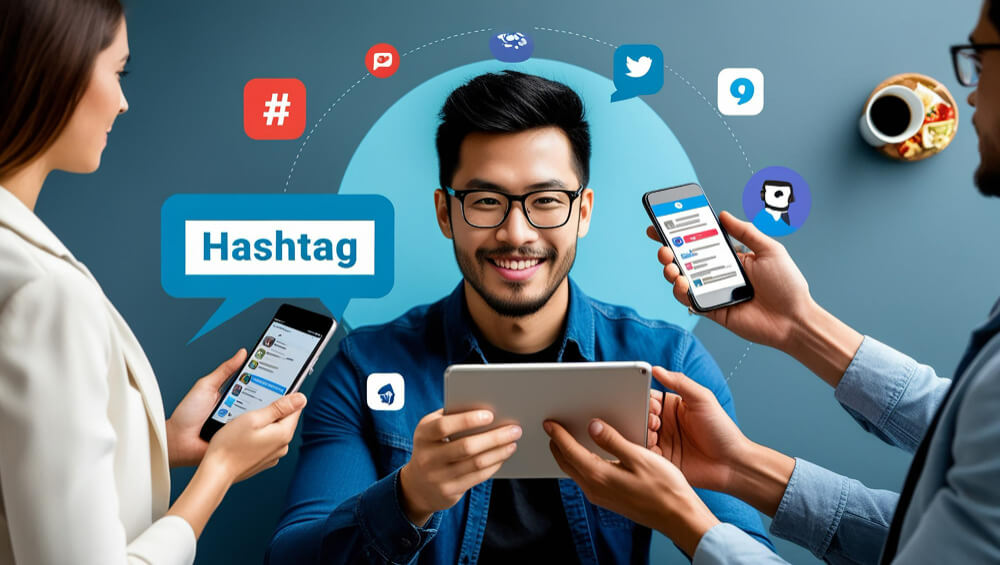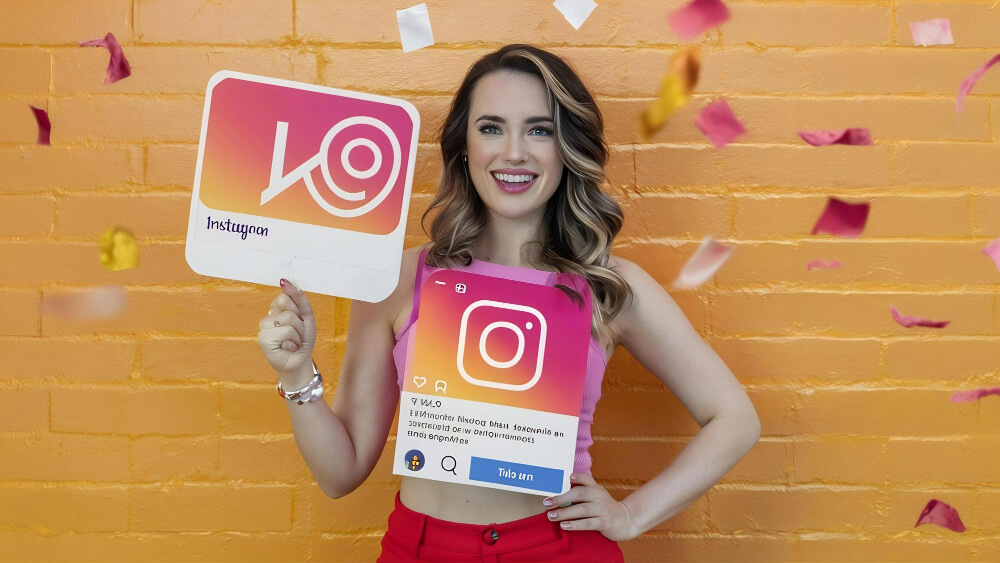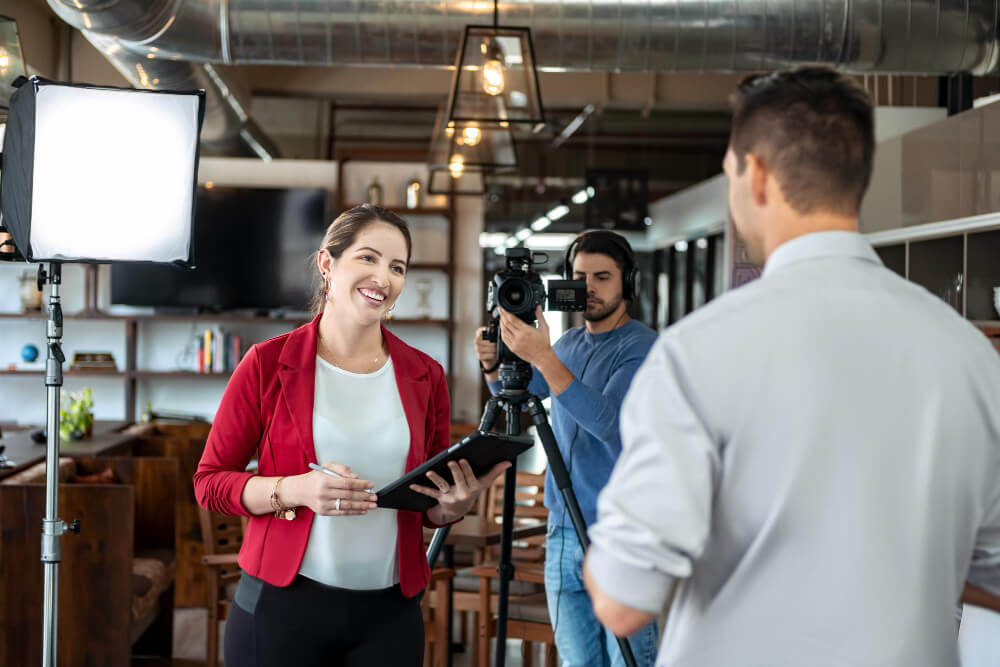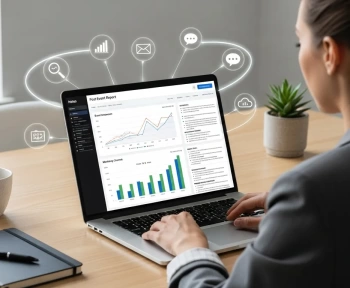Without a doubt, social media is one of the most powerful tools accessible to event planners in the digital era for engaging the public with promotional events and developing long-term collaborations. Facebook and Instagram provide incredible opportunities to engage with audiences, raise event awareness, and expand your reach, whether using them as part of an event branding or creating social media strategies. Given how congested the market is, amplification via social media is essential for any event, no matter how small the workshop is or how massive the conference is.
In this blog, we’re going to dive into utilizing social media platforms for events. To break it down, we will discuss three areas: engaging with your audience, advertising your event, and broadening your audience. We will also discuss strategies on how to promote events on Facebook & Instagram and how one can align their event goals into their social media branding.
Table of Contents
1. Connect: Build Relationships and Engage Your Audience Early
Early engagement determines the success of any event. Using social media is a great way to start building those relationships with potential attendees, speakers, partners, and other stakeholders long before the event day itself. So thoughtfully designed event branding on social media and interaction can create a community for that event, making it feel more connected and invested in.
A) First Mover Advantage With Social Media Strategies For Events:
One of the most ideal social media strategies for events is to start promoting much earlier. Presumably, the early bird gets the worm because beginning your campaign for an event several months in advance gives it sufficient time for the buzz to build. This also gives attendees ample time to plan and register. Use advanced content reveals, speaker confirmations, and early bird ticket sales to generate excitement. Instagram and Facebook Stories are great places to share real-time updates like this and get the conversation going.
B) Hashtags For Conversations:
When you create event-specific hashtags, it gives the attendees an easy way to share their excitement, insights, and experiences related to your event. A branded hashtag that’s associated with social media event branding ensures consistency throughout different platforms. Try and get everyone your speaker and attendees down to sponsors to use this hashtag for it to grow organically. This could include inviting your followers to share what they’re most looking forward to using your event hashtag, or asking them to vote on content for the event.

C) Engage With Your Audience Actively:
Social media is more than just a way to share information about events. This is a two-way communication. Engaging by responding to comments, acknowledging followers, and soliciting feedback will help you build a loyal audience. Engage your Facebook and Instagram followers by answering their questions and encouraging them to offer their feedback on your posts. Authentic connections will increase your audience’s interest in your event while also making them feel valued.
D) Polls, Surveys, And Interactive Content:
Another good strategic angle within your event social media strategy is using interactive content, such as a poll or survey. Both Facebook and Instagram provide easy-to-use tools to make these polls, so you can reach out to your audiences to get input on session topics, preferred speakers, or even what kind of experience they want at your event. Engaging your audience in this way gives the audience a feeling of involvement and personal investment in your event, thereby increasing their chances of attending it.
2. Promote: Get the Word Out on Facebook & Instagram
Promotion is a major part of the event’s social media strategy. Through Facebook, Instagram, and other social media platforms, one can distribute information, sell tickets, and keep his or her event top of mind for potential attendees. Both of these mediums have very strong advertising capacities, which along with organic promotional activities, help with outreach.

A) Promote Events On Facebook & Instagram With Paid Ads:
Facebook and Instagram allow event organizers to undertake high-scale advertising campaigns targeting specific demographics, behaviors, interests, and much more. If event marketers are using Paid advertisements to promote events on Facebook &Instagram, then they can create ads that may be inclined to promote ticket sales, early bird offers, or speakers’ details. Use paid advertising to reach out to people who have not yet connected with your event, increasing visibility and conversion rates.
B) Craft Engaging Imagery For Event Branding On Social Media:
Your content needs to be interesting to hook the interest of potential attendees and keep them there. Creating high-quality colorful imagery reflecting the excitement and purpose of your event is a vital element of your social media event branding. So, on Instagram, visual material is everything so make your graphics and videos stand out and your tales. Share a mix of content with an engaged audience, such as teasers of upcoming events, countdowns, behind-the-scenes images from previous events, and updates about previous events.
C) Share Testimonials And User-Generated Content:
Social proof will help to convince prospective attendees that your event is worth their time. Utilize the testimonials from past attendees and user-generated content while truly promoting your event. Motivate attendees, partners, and influencers to express their excitement on both Facebook and Instagram by tagging the handles of your event or using the event hashtag. Posting this content on your networks will help popularize your event, and also be a form of social proof displaying that people are interested in attending it.
D) Co-Partner With Influencers And Brand Partners:
Influencers are an excellent method to promote your event. You can easily contact your established audience if you collaborate with the proper influencer who understands your sector. Offering them complimentary tickets or access to unique event content may be sufficient incentive for them to promote your event. Furthermore, collaborating with other businesses or organizations affiliated with your event through cross-promotions will improve your influence on new audiences. This works especially effectively on Facebook and Instagram, where cross-posting and shoutouts from influencers increase visibility and engagement.

E) Event-Specific Landing Pages & Registration Links:
In your Facebook and Instagram event promotion efforts, include calls to action that link users to your event’s landing page. Use sites like Eventbrite to make it easy for people to register for your event, and make sure the registration links are immediately accessible from your posts. It will combine Instagram’s “Link in Bio” and Facebook Event capabilities to speed the registration process, allowing consumers to seamlessly transition from marketing to sign-up.
3. Grow: Expand Your Audience and Build Long-Term Relationships
While creating buzz for a one-time event is important, social media is, equally too, a precious resource for building a community around your brand. After the event is finished, engagement on social media can continue to create a long-term relationship with the audience, ensuring they come back for a future event.
A) Post-Event Content:
Keep the conversation going on social media after the event is over. Share event highlights in photos, videos, testimonials, and major takeaways from speakers. Content such as these keeps the people attending engaged and also gives a reason for the people who stayed behind to follow your event’s social media channels for future updates.
B) Leverage Insights And Analytics:
Both Facebook and Instagram provide deep analytics that track in-depth the success of your posts, ads, and overall social media strategy. By monitoring the metrics around engagements through likes, shares, comments, and click-through rates, you can monitor what worked and what did not. For an event social media strategy, such insights are invaluable for improving and bringing up more effective campaigns in future events.

C) Build A Community For Future Events:
Social media is a great space to establish a loyal, long-term community. You can create groups or exclusive channels on Facebook or Instagram where attendees can continue to interact, share insights, and network even when the event is over. This sort of continued interaction builds a deeper connection with your brand and ensures that your community stays engaged throughout the year, not just at your events.
D) Brand Consistency:
To achieve the long-term growth of your audience, proper event branding on social media is an absolute necessity. Your graphics, message tone, or even content strategy need to be consistent as well across all platforms to have a solid brand identity. New followers will be driven by consistency; however, the content may keep your existing followers with your brand in the long run.
Conclusion
Social media plays a pivotal role in any organizer’s quest to horizon, promote, and increase their involvement. This implies that formulating social media strategies for events, emotional connection, evoking interest in the audience, and increasing the number of participants becomes easier. Social media like Facebook and Instagram are enriched with features that can be used to announce events, involve the audience, and post pictures and videos of the events in ads as well as build up communities. If these tactics are utilized on social media with effective event branding, they will not only bring several expected attendees to the event but also create a fan base that will be loyal to the brand for a long period.




